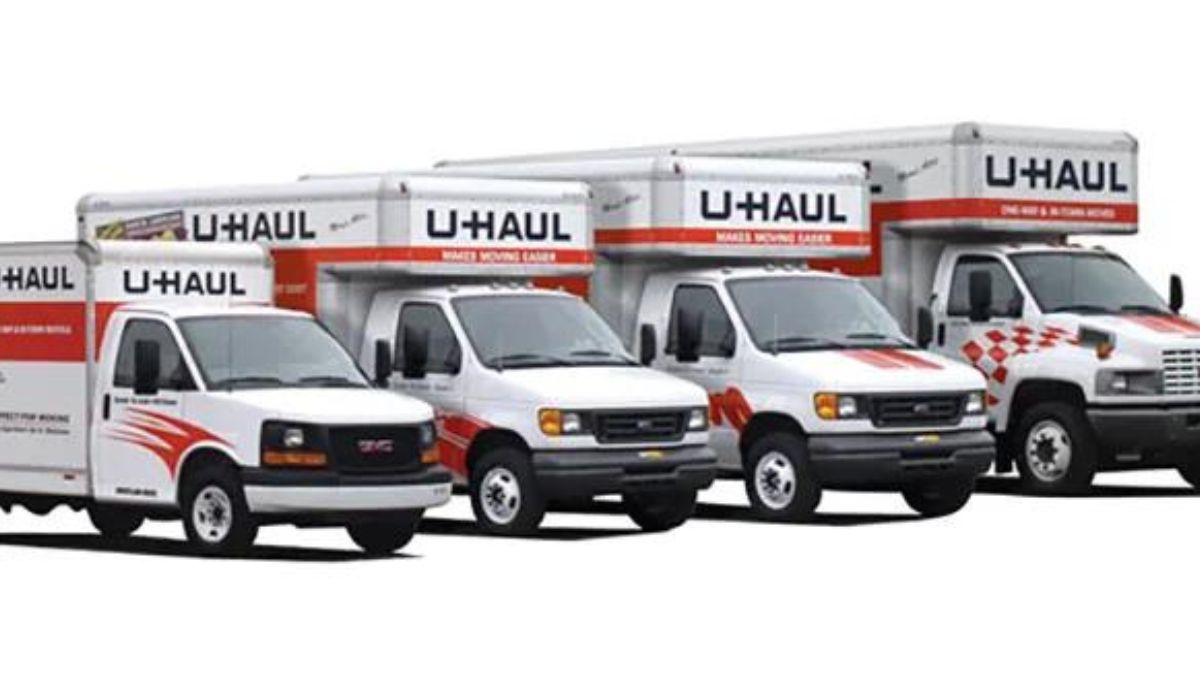Business
Uhaullife: Ultimate Moving Experience

Introduction
Relocating to a new area has its share of advantages and disadvantages. It may be stressful to pack up all of your stuff and move them to a new location, whether you’re moving across town or across the country. Uhaullife is here to help with that. In this detailed tutorial, you’ll learn all about Uhaullife and how it may simplify your relocation.
Table of Contents
What is Uhaullife?
U-Haul users have coined the phrase “uhaullife” to characterize the benefits of renting a moving truck from the company. Itis an industry leader in providing convenient and dependable moving and storage services. It also provides all the resources necessary for a successful relocation, including truck rentals and packing materials.
The Benefits of Uhaullife
Convenience at Your Fingertips
Uhaullife unrivalled ease of use means you can tailor your relocation to your specific needs and busy schedule. U-Haul has made it simple to reserve a vehicle, buy packing materials, and move using their well-designed website and mobile app. With Uhaullife, you won’t have to wait around for movers or worry about trying to coordinate schedules.
Freedom and Adaptability
Uhaullife adaptability is a major selling point. With U-Haul, you may rent a truck of any size to accommodate your specific situation. U-Haul has trucks of all sizes, so you may rent one whether you’re relocating a small apartment or a large house. Because of this adaptability, you’ll only have to rent as much space as you really use.
An Economical Approach
Uhaullife provides a low-priced alternative to the traditional moving company. U-Haul’s truck rental rates are affordable, and you may save money on gas by returning the truck somewhere else than where you picked it up. U-Haul also sells a variety of packing materials at reasonable costs, so you may safeguard your things throughout the relocation.
Consistently Reliable Assistance
Dependability is essential while relocating. U-Haul has been around for decades, so they know what they’re doing when it comes to offering dependable service. U-Haul has your back from start to finish of the moving process with their vast fleet of well-maintained vehicles and nationwide network of facilities.
Uhaul Lifestyle: Uprooting Easy
Uhaullife takes the stress out of the moving process. If you want your relocation to go as smoothly as possible, consider the following advice:
1. Prepare ahead of time
Successful relocation requires careful preparation. You should begin by making a comprehensive list of everything that has to be done in preparation for, during, and after the relocation. This will assist you in maintaining order and avoiding missteps.
2. DE clutter Before You Pack
De-cluttering and getting rid of unwanted stuff are easy to accomplish during a move. Sort through your stuff to determine what may be given, sold, or thrown out before you begin packing. This will not only relieve some of your burden, but it will also make unpacking easier at your new place.
3. Pack Strategically
Packing efficiently relies on meticulous preparation. Start with the things you rarely use and clearly name the contents and the room they belong to in each box. It will be much easier to unpack and find things during the move if you do this.
4.Invest on good packing materials.
It’s crucial to spend money on high-quality packaging materials to safeguard your possessions during shipping. Boxes, bubble wrap, packing paper, and tape are just some of the packing materials available from U-Haul. If you use solid boxes and pack carefully, your belongings should make it to your new house unscathed and in excellent condition.
5. Strategically pack the truck.
The best way to ensure that all of your belongings fit safely and securely in the moving truck is to load it effectively. The truck’s weight may be distributed more efficiently if the heaviest and largest goods are placed near the bottom. Protect your furniture and prevent it from moving around during transport by using padding and straps.
FAQs about Uhaullife
Q1: Can I rent a U-Haul truck without a reservation?
U-Haul accepts walk-in clients on a first-come, first-served basis; however reservations are strongly encouraged to guarantee availability. Keep in mind that popular truck sizes may have limited availability, so booking ahead of time is recommended.
Q2: Is it possible to use a U-Haul truck to pull my car?
You can tow a car behind a U-Haul rental truck since the company rents out tow dollies and car carriers. When relocating great distances, this is a practical alternative to renting many automobiles.
Q3: What are the eligibility requirements to rent a U-Haul truck?
In order to rent a truck from U-Haul, you must satisfy certain requirements, such as being at least 18 years old and in possession of a major credit card or debit card in your name. Tenants must also be licensed drivers who fulfil all state criteria and have enough insurance.
Q4: Can I Drop Off the U-Haul Truck Somewhere Else?
One-way rentals allow you to return your U-Haul truck at a different address from where you picked it up. If you need to go a great distance but don’t have the time or energy to do a U-turn, this is a great option.
Q 5: When I need to extend my lease, what options do I have?
The U-Haul facility from whom you rented the vehicle is the best place to inquire about a rental extension (A5). You may get help extending your lease from them, as well as details on any fees that might be incurred.
Conclusion
When it comes to relocating, Uhaullife is your best bet for ease, customization, and economy. You can take charge of your relocation and ensure its success with the help of U-Haul’s dependable service and extensive selection of moving options. Embrace the Uhaullife the next time you move and relax into your new place of residence.
Business
RaterPoint: Features, Uses and Trust Guide

Introduction
Have you ever felt stuck choosing the right product in a world filled with endless options and ads? That’s exactly where RaterPoint steps in, acting like your honest friend in a noisy marketplace. It helps you make smart choices with real reviews, comparisons, and product alternatives in one place. Think of it as your shopping compass, pointing you toward quality products while avoiding misleading recommendations. Let’s explore how RaterPoint simplifies decisions and why it’s quickly becoming every smart shopper’s favorite tool.

What Sets RaterPoint Apart?
Unlike other platforms filled with spam, RaterPoint focuses on transparency, community trust, and genuine experiences. Its intelligent interface guides users effortlessly, offering product suggestions based on verified customer reviews. Instead of pushing sponsored content, RaterPoint uses algorithms to highlight what people actually love and recommend. This means you’re not being sold to—you’re being supported in making smarter, informed product decisions.
How to Use RaterPoint: Step-by-Step Guide
Mastering RaterPoint is easy, even for first-time users. You just need to follow a few simple steps.
Register and Get Started
First, sign up using your email or social login to personalize your experience on the platform instantly. You’ll then receive a quick tour explaining key features, such as browsing reviews and exploring alternatives. Customizing your profile helps RaterPoint tailor suggestions based on your interests, past searches, and reviews.
Searching for Products and Reviews
Use the search bar at the top to find specific products, brands, or even categories you’re interested in exploring. RaterPoint displays an organized list of results with customer ratings, detailed reviews, and product specifications. This lets you compare multiple products without having to jump between different websites or apps.
Exploring Product Alternatives
Not loving the top choice? RaterPoint shows several similar alternatives based on price, features, and performance. Each option includes side-by-side comparison tools, letting you weigh the pros and cons with complete clarity. You’ll never feel forced into a single brand when RaterPoint gives you informed freedom to choose smartly.
Reading Reviews and Guides
RaterPoint features verified user reviews along with in-depth buying guides created by experts in each category. These guides break down technical jargon and highlight what really matters when making purchasing decisions. The honesty in these reviews helps prevent buyer’s remorse and builds your confidence before hitting “buy.”
Engaging with the Community
Want to ask questions or give your own opinion? The community forum allows that with a welcoming and friendly vibe. You can follow contributors, join discussions, or comment on posts to share your experiences or ask for advice. This interaction makes RaterPoint not just a review site but a shared platform for conscious consumers.
Why Trust RaterPoint?
Trust is built into the DNA of RaterPoint through strict moderation, authenticity checks, and transparent review policies. Fake reviews and manipulative tactics are filtered out by algorithms and verified by community moderators. When you read a review here, you know it came from someone who genuinely tried and tested the product themselves.
Practical Uses of RaterPoint in Everyday Life
Picture this—you’re buying headphones but confused by contradicting reviews on various random websites. With RaterPoint, you get a full breakdown of ratings, alternatives, and even expert insights—all in one space. From electronics to kitchenware, RaterPoint is your digital advisor for nearly every type of consumer product.
How RaterPoint Helps You Save Time and Money
Why waste hours browsing and switching between ten tabs when one tool can do it all for you? RaterPoint shortens your research time by compiling and analyzing data from multiple sources into digestible reviews. Additionally, its price comparison tool ensures you always pay the best amount for the quality you expect.
Comparing Brands with Confidence
When unsure between two similar brands, RaterPoint’s side-by-side comparison tool steps in like a helpful friend. It compares technical features, user satisfaction, pricing, and expert ratings, all in one screen. Confidence grows when you see clear comparisons without needing to search for information elsewhere.
Expert Tips for Using RaterPoint Effectively
To get the best from RaterPoint, create watchlists, follow top reviewers, and set up product alerts. Use filters like “Top Rated,” “Budget Picks,” or “Newly Reviewed” to tailor your shopping journey precisely. Reading multiple user reviews provides a well-rounded perspective and prevents biased decision-making.
What Users Are Saying About RaterPoint
“RaterPoint made my shopping experience feel like I had a personal consultant helping me each step,” one user wrote. Thousands of users rave about its accuracy, helpfulness, and community-driven nature, making it truly stand out. From college students to parents, everyone appreciates the honesty and usefulness of the platform’s rich insights.
Mobile Access: RaterPoint on the Go
Whether on a bus, at a store, or during a lunch break, RaterPoint’s mobile app keeps you informed anytime, anywhere. The app’s clean design offers full functionality, including searching, reviewing, and engaging with the community. With push notifications for deals and updates, you never miss out on opportunities that match your interests.
Conclusion
In a world of overwhelming choices, RaterPoint brings clarity, trust, and ease to the shopping experience. It’s more than just a review site—it’s a reliable partner guiding you through every purchase decision wisely. By offering real reviews, genuine alternatives, and strong community support, RaterPoint earns its place as a favorite. Next time you’re unsure about a product, remember that RaterPoint is just a click away, ready to help you choose.
Frequently Asked Questions (FAQs)
Is RaterPoint free to use for all users?
Yes, RaterPoint is entirely free for users to access reviews, comparisons, and product guides anytime they wish.
How are the reviews on RaterPoint verified for authenticity?
RaterPoint uses advanced algorithms and manual moderation to filter fake reviews and validate real user contributions.
Can I contribute my own product reviews on RaterPoint?
Absolutely! After registering, you can write reviews, rate products, and even interact with other users in the forum.
Is there a mobile version or app for RaterPoint?
Yes, RaterPoint offers a user-friendly mobile app available on both iOS and Android for on-the-go convenience.
Does RaterPoint offer affiliate links or sponsored content?
No, RaterPoint does not prioritize affiliate content. It focuses solely on unbiased, user-first product recommendations.
Finance
InvestmentTotal.com: Your Hub for Effective Investment Guidance

Introduction
Investing may be a challenging activity for any character, in particular an amateur. For them, InvestmentTotal.com tries to offer reliable and correct facts that are important for looking to build their wealth neatly. As an investment hub, it gives important suggestions, tactics, and techniques to help freshmen make higher funding decisions.
What is InvestmentTotal.com all approximately?
InvestmentTotal.com comes up as a one-stall online supply geared toward presenting schooling to all inquisitive about making an investment. Apart from shares and actual estate, the internet site offers steering for making an investment in a wide range of fields, which include cryptocurrency and retirement price ranges. The website objectives are to break down difficult financial terms for the common individual.
Why select InvestmentTotal.com over the marketplace?
In order to efficiently make investments, these three avenues need to be applied in reasonable quantities: expertise, pace, and strategy. The want of having the proper facts accessible is critical due to the fact that numerous people lose their money. InvestmentTotal.com objectives to mitigate losses by providing right content, satisfactory strategies, and current energetic marketplace facts. The remaining purpose is easing the monetary burden on customers with the aid of giving them the tools for effective and smart funding.
Characteristics of InvestmentTotal.com
With the tagline “Your manual to smart investing”, InvestmentTotal.com has come up with a considerable array of functions for less difficult and quicker funding options. The web page gives useful articles, make-investment calculators, and danger profiling structures to empower users to provide you with well-informed selections. The web page caters to each novice buyers in addition to the extra experienced.
Investment Strategies: A Deep Dive
A key benefit of hosting services like InvestmentTotal.com is its attention on investment techniques. The platform details more than one procedure, inclusive of lengthy-time period investing, dividend funding, and even actual estate funding. Each method is outlined in layman’s terms so that buyers may determine which fashion suits them great.
Understanding Risk and Reward
The truth is that any funding made comes with a certain degree of danger. Some investments, like shares, deliver loads of threat, but the possible returns are high. Other investments, like bonds, have lower threat returns, but are more solid. InvestmentTotal.com assists traders in understanding their threat profile and enables them to determine the styles of investments they have to pursue. It additionally offers pointers on how to cut fees and maximize gains.
How to get commenced with InvestmentTotal.com
Opening an account with InvestmentTotal.com is straightforward and easy. Simply go to the website and check out the one-of-a-kind guides offered. For first-time traders, begin with stock and passive profit subjects. For the ones more skilled traders, there’s distinctive evaluation of the market and forecasts to be had
The Role of Diversification
An equally important component of investing is diversifying. Spreading investments across one-of-a-kind asset classes is useful in curbing dangers and enhancing economic security. As noted via InvestmentTotal.com, owning shares, bonds, a mutual price range, or even real property all assists in diversifying your portfolio. In turn, a properly varied portfolio mitigates risks because of market fluctuations.
The Importance of Financial Planning
Effective investing hinges on the right financial plans. InvestmentTotal.com gives assistance on budgeting, saving, and even setting investment targets. Having described movements lets in buyers to live disciplined and make selections that support their set desires. The website online also covers retirement making plans, which ensures that users cape out for their destiny.
Learning About Cryptocurrency Investments
In the last few years, cryptocurrency has won traction as a funding possibility. Unfortunately, it’s similarly a very volatile market. InvestmentTotal.com helps investors understand the advantages and downsides of digital asset investing. Areas addressed encompass Bitcoin and Ethereum, in addition to blockchain technology, in order that users could make the right selections on the subject of crypto investments.
Insights On Real Estate Investment
In terms of balance, actual property is one of the best alternatives to be had. InvestmentTotal.com helps humans with buying condominium properties, flipping houses, or even investing in industrial actual estate , and explains the way to evaluate those residences, obtain financing, and secure passive
income through actual estate funding. A neat manner to begin is knowing a way to put money into these residences.
Investment Tools and Resources
The internet site also places collectively a number of pieces of equipment that assist with planning investments for the future, which may be so beneficial. Other gear includes calculators for retirement savings, mortgage payments, and even compound interest. This gear should assist users to make as unique economic projections as possible to allow realistic and workable goals for investing to be set.
Staying Updated with Market Trends
The funding world is constantly converting. Investors should remain on the lookout for the numerous and perpetual changes within the financial system, along with shifts, inventory market moves, or even coverage changes. InvestmentTotal.com re-evaluates the market conditions frequently to make certain that purchasers remain at the vanguard of spending their cash, which allows for a wiser funding market. By looking into traits, buyers can alternate their spending habits for the higher.
Tips for Avoiding Investment Scams
Fraudulent schemes are common, and many people lose cash because of them. InvestmentTotal.com helps serve the purpose of instructing traders on how to keep away from scams. Investment Total places together a few clear guidelines on how to well conduct research before making any monetary commitments. The web page also affords clean signs of fake investment possibilities in order that human beings can continue to be secure and sound
Investors and their learnings on non-stop standing
The funding world is continually converting and shifting. With each passing day, new things come up, which makes investing higher and less difficult. This proves the importance of learning and retaining up with the modern cash-making techniques. InvestmentTotal.com believes in progressive mastering and even has webinars, tutorials, and interviews with professionals on its platform that provide users with an awful lot of wanted help with regards to staying up-to-date with present-day and new economic curricula that may be helpful for buyers.
The arriving plans of InvestmentTotal.com
As the world modifications and adapts to new investing developments, in which human beings look for greater fee-green ways of placing their savings in vicinity, InvestmentTotal.com can even paintings and evolve. From IT, the platform’s purpose is to roll out greater tailor-made and advanced marketing studies and devices for investment guidance, for even greater investments on a personalized stage. Other customers may have improved ways and functionalities to assist and facilitate them at some stage in the entire financial path toward their monetary dreams.
Conclusion
InvestmentTotal.com is specially designed for those and wealth developers as well as inactive investors. And absolute confidence that the contemporary hints, techniques, investment possibilities, and even gear they may have will help them make effective choices. With steering from the platform, investors may have a strong future financially while reaching their lifetime goals.
Business
What You Need To Know About Bizhunet

New platforms and tools keep popping up in the digital world. They aim to make business better, improve marketing, and help people connect. Bizhunet is one such platform. It offers tools for businesses to succeed in today’s competitive world. This article will cover the basics of Bizhunet, its features, benefits, and how it can help your business.
Understanding Bizhunet
Bizhunet is a platform that helps businesses connect and network. It’s an online space where companies can find partners, clients, and suppliers. Bizhunet also offers services to help businesses grow and work better.
At its heart, Bizhunet aims to connect businesses with the resources they need. This is crucial in today’s fast-paced market.
The Evolution of Business Networking
Business networking has changed a lot in the last decade. It’s moved from face-to-face meetings to online connections. Now, platforms like Bizhunet offer new ways to network efficiently.
With so many companies vying for attention, making meaningful connections is tough. Bizhunet makes networking easier. It helps businesses form valuable partnerships through a user-friendly interface.
Features of Bizhunet
Bizhunet has a range of features that make business connections easier. These tools help users navigate the complex world of business networking:
1. Advanced Search Capabilities
Finding the right partner or client can be hard. Bizhunet uses smart search algorithms. Users can filter searches by industry, location, and service offerings. This helps businesses find the right connections quickly.
2. Collaboration Tools
Collaboration is essential for business success. Bizhunet offers tools for seamless collaboration. Users can share documents, manage projects, and chat in real-time. This helps teams work together, no matter where they are.
3. Community Engagement
Bizhunet is more than a networking platform. It’s a community where businesses can share knowledge and learn from each other. Users can join forums, webinars, and workshops. This enriches their understanding of market trends and best practices.
4. Marketing Solutions
Getting products or services in front of the right audience is a big challenge. Bizhunet offers marketing solutions to help. Users can manage campaigns and track their success. This helps make informed decisions for future marketing efforts.
5. Educational Resources
Bizhunet also focuses on education. It provides articles, case studies, and tutorials on important business topics. This helps users stay updated with industry trends and adapt their strategies.
Benefits of Using Bizhunet
Using Bizhunet offers many benefits for businesses. It’s a great choice for improving networking and growth strategies. Here are some key advantages:
1. Enhanced Efficiency
Bizhunet combines various tools and resources into one platform. This makes operations more efficient. Businesses can save time by accessing everything they need in one place.
2. Cost-Effective Networking
Networking can be expensive, especially with traditional methods. Bizhunet offers an affordable way to connect and collaborate. This saves businesses money without sacrificing quality.
3. Boosted Visibility
Bizhunet’s marketing solutions help businesses get noticed in their industries. By promoting services to the right audience, companies can attract leads, increase brand awareness, and boost sales.
4. Access to a Global Network
In today’s world, connecting globally is key. Bizhunet breaks down barriers, letting businesses reach out to partners and clients worldwide. This opens doors to new collaborations and growth opportunities.
5. Ongoing Support and Resources
Bizhunet doesn’t just connect businesses; it also offers ongoing support. It provides educational resources and community engagement. This support helps businesses stay ahead in the market and improve their strategies.
Conclusion
Bizhunet is a standout in today’s digital business world. It helps businesses connect, collaborate, and get noticed. Its features are perfect for businesses of all sizes to navigate networking and growth.
Whether you’re a small startup or a big company, Bizhunet has what you need. It focuses on efficiency, connections, and learning. This way, businesses can succeed in today’s tough market.
In short, Bizhunet is more than just a networking site. It’s a full ecosystem for businesses. Check out Bizhunet and change how your business networks and grows online.
